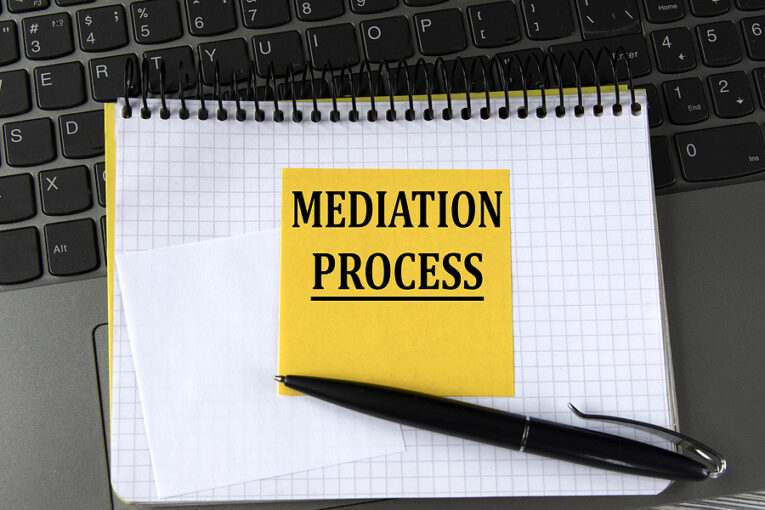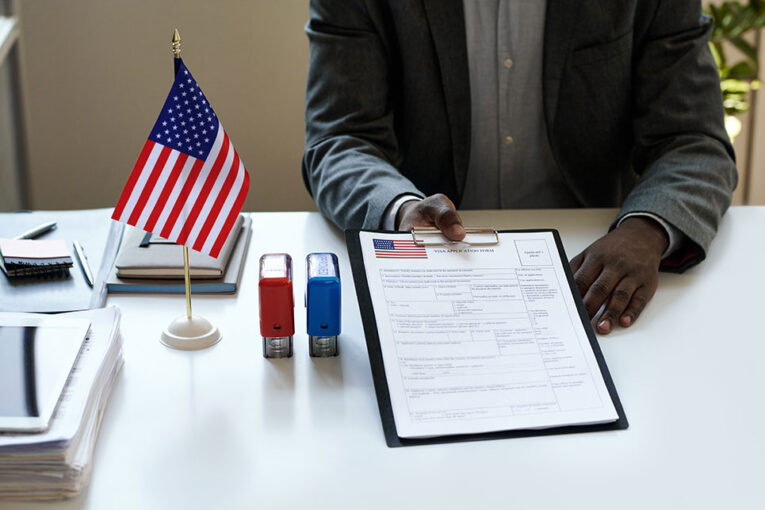Introduction
Mediation is an increasingly popular form of alternative dispute resolution (ADR) that allows businesses to resolve legal conflicts without going to court. A trained, accredited neutral third party known as a mediator helps facilitate constructive communication and negotiation between the disputing parties.
The key benefits of mediation include:
- Flexibility: The process is informal, and the parties have control over shaping the resolution.
- Speed: Disputes can be settled in weeks or months rather than years.
- Cost: Professional fees and other expenses are typically much lower than litigation.
- Confidentiality: Discussions remain private and cannot be used as evidence if the case does go to court.
- Preserving relationships: solutions focus on mutual interests rather than zero-sum outcomes.
Mediation aims to help the parties narrow the issues in dispute and either completely resolve the conflict or at least clarify the core outstanding matters. This allows businesses to avoid the expense and disruption of a lengthy court case. Even if a full agreement is not reached initially, mediation often lays the groundwork for an out-of-court settlement down the road.
How Mediation Works
So your business is embroiled in a legal dispute. You’ve weighed your options and think mediation might be the way to go. But how does it actually work? Let’s break it down step-by-step.
First, mediation is not the same as litigation or arbitration. There are no rules of evidence, no discovery processes, no cross-examinations, and no judge or jury ultimately deciding the outcome.
Instead, think of mediation as more like assisted negotiation. The key player is the neutral third-party mediator. This person is trained in conflict resolution, communication, and the law. Their role is to create a constructive discussion and explore options for a mutual settlement.
The mediator does not represent either party or have any authority to impose a resolution. Their power comes from their ability to get people to communicate and shift the focus from the past to the future.
So how does a typical mediation session go? Here’s the play-by-play:
- The mediator explains the process and ground rules. The parties may give short opening statements about their perspective.
- The mediator will then facilitate a free-flowing conversation, allowing each side to share their interests, concerns, and any confidential information not previously disclosed.
- As needed, the mediator may meet separately with each party to have candid discussions about needs and priorities. Anything said in these private meetings remains confidential unless the party gives permission to share details with the other side.
- After gaining a full understanding of the situation, the mediator helps the parties explore possible solutions that could meet their core interests. Multiple options may be discussed as the participants are encouraged to think creatively.
- Finally, if the parties are able to identify a mutually acceptable resolution, the mediator assists them in formalizing the agreement in writing. This signed settlement becomes a legally enforceable contract.
Some other key things to know about mediation are:
- It’s a flexible process; the mediator and parties work together to shape the sessions in a way that makes progress toward resolution.
- Mediation lets participants control the outcome rather than leaving it to a judge or arbitrator. The focus is on practical business solutions rather than just legal remedies.
- Everything said in a mediation is confidential and cannot be used later as evidence in court. This allows candid conversations.
- A mediation can be paused and resumed over multiple sessions until the parties either settle or conclude they are at an impasse.
So, in summary, mediation provides a structured yet informal setting for adversarial parties to communicate constructively under the guidance of an impartial professional. This facilitates interest-based negotiation rather than positional bargaining. And it’s all done in a private, confidential environment focused on achieving a business resolution.
When to Use Mediation
So now you understand the mediation process. But how do you know if your specific dispute is a good fit? Here are some key factors to consider:
Types of disputes well-suited to mediation:
- Breach of contract claims
- Business partnership disagreements
- Commercial lease disputes
- Construction disputes
- Insurance claims
- Intellectual property conflicts
- Employment law issues
- Shareholder/director disputes
In general, almost any civil-business conflict can potentially be mediated if the parties are willing to negotiate in good faith. The only exceptions are criminal matters or cases where binding legal precedent is needed.
However, mediation may not be advisable if:
- There is a significant power imbalance, making fair negotiation unlikely.
- The main goal is to set a public precedent.
- The plaintiff seeks to punish the defendant rather than reach a compromise.
Timing considerations:
- Many contracts now include mediation clauses requiring this process before formal litigation.
- Mediation can occur before any lawsuit is filed, after filing but before trial, or even after a court decision to resolve outstanding issues.
- However, beginning mediation early on generally provides more opportunity for creative problem-solving before positions harden.
- An initial unsuccessful mediation doesn’t preclude trying again later as more case facts emerge.
Bottom line: anytime after a dispute arises and before a final court judgment, mediation is worth considering. The earlier, the better, but it’s never too late.
Even if a full settlement isn’t reached, mediation helps narrow the issues, so that any potential court case becomes more focused and efficient. This saves significant legal expenses down the road.
So be proactive about proposing mediation to the other party. It gets you communicating constructively and puts you back in control of resolving the conflict on your own terms.
Preparing for a Mediation Session
You’ve decided to try mediation and scheduled your first session. Excellent! Now let’s make sure you’re fully prepared to make the most of this opportunity.
First, gather key documents like the contract in dispute and communications with the other party. Having the core records on hand provides clarity and certainty. Don’t try to overwhelm the mediator with every minor detail; just focus on the major evidence needed to evaluate the situation.
Next, decide if you want to bring a lawyer or other representative. Having support can be helpful, but it’s not required. If you do plan to have your attorney participate, let the mediator know in advance.
You should also set expectations with the mediator about what you hope to achieve. Be realistic; mediation is about finding a middle ground through compromise. Make it clear if preserving an ongoing relationship is important to you.
Right before the session:
- Clear your schedule so you can give the process your full attention without rushing off.
- Have an open mind. Don’t get fixated on any predetermined outcome.
- Get ready to listen. You’ll gain a new perspective by hearing the other side’s views directly.
- Focus on the future rather than past grievances. Look for constructive solutions.
With the right mindset and preparation, you’ll demonstrate good faith and maximize your chances of having a productive mediation session resulting in the resolution of the dispute.
During the Mediation Session
You’ve prepped for mediation, and now the big day has arrived. Here’s an overview of what typically happens during these sessions, so you know what to expect:
The mediator will kick things off by explaining the process, getting agreements on confidentiality and other ground rules, and allowing each side to present an opening statement.
Don’t feel like you need to rehash every detail here. Focus on the core interests and priorities you want the other party to understand. The mediator will ask clarifying questions as needed.
With the basics established, the real work begins as the mediator facilitates an open dialogue. This is your chance to:
- Share your perspective on the dispute; don’t hold back on facts the other side needs to hear.
- Listen with empathy as the other party expresses their own concerns. Look for shared interests.
- Brainstorm options for a mutually beneficial way forward. Get creative!
The mediator may meet with each of you individually to have private conversations about confidential topics you aren’t ready to bring up together yet.
These separate meetings also allow for reality-testing any proposals with the mediator before presenting them to the other party. They can point out potential flaws or unintended consequences.
Hopefully, through productive conversation, new ideas emerge that meet the core needs of both sides. As potential options arise, you’ll discuss the pros and cons and refine the specifics until a consensus resolution takes shape.
Eventually, if a mutually acceptable agreement is reached, the mediator assists you in formalizing the terms in writing. Typically, both parties and the mediator sign this settlement document.
Of course, not every mediation ends in agreement. Sometimes core differences mean a trial or arbitration is unavoidable.
But even then, mediation helps narrow the disputed issues, fully air grievances, better understand all perspectives, and identify points of agreement.
So don’t see a mediation that doesn’t produce a signed settlement as a failure. Just getting both parties to communicate constructively for a few hours can have huge value.
With an experienced mediator guiding the discussion, you’ll be surprised at what progress can be made during these sessions compared to the endless back-and-forth of letters between lawyers.
Stay flexible, open-minded, and future-focused throughout the process. Mediation puts resolution back in your hands; take advantage!
After the Mediation Session
The mediation session has concluded. What happens now depends on the outcome.
If an agreement was reached,
- The written agreement that all parties have signed is now a contract with legal standing.
- It should be self-enforcing, but if one side doesn’t comply, it can be enforced like any other agreement in court.
- Both parties will likely commit in writing not to initiate any further legal action related to the settled dispute. This mutual release provides certainty.
- If litigation is already underway, notify the court and request that the settlement terms be incorporated into a court order. This adds an extra layer of enforceability.
If no agreement was reached,
- The mediator can provide a letter confirming an impasse was reached, protecting both parties’ rights.
- Any narrowing of issues, partial resolutions, or areas of agreement should be documented to streamline potential future litigation.
- Additional mediation sessions can always be scheduled if circumstances change. Sometimes a stalled negotiation just needs more time.
Either way
- Treat the mediation process as confidential beyond the final written agreement. Comments made cannot later be used as evidence in court.
- Thank the mediator and provide any constructive feedback on how the process could be smoother next time. Their job is to guide the conversation, not force any particular result.
So, in summary, a signed settlement agreement or confirmation of the impasse brings closure to the mediation phase. But the lines of communication opened can provide lasting value in resolving business conflicts.





